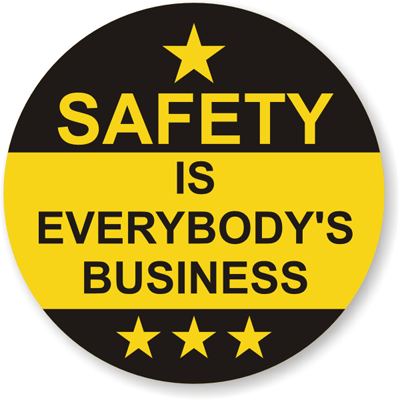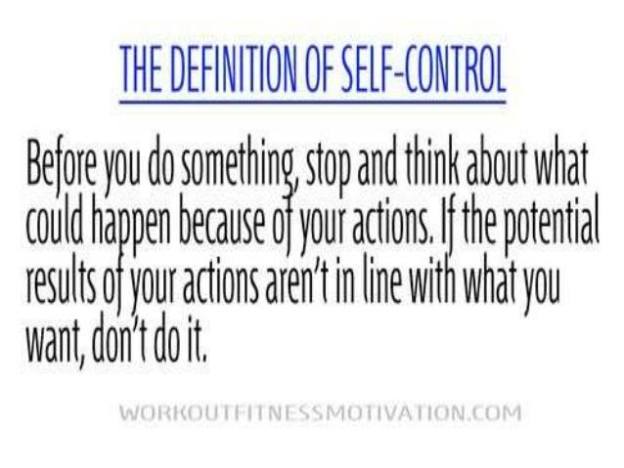So, in today’s post, I’d like to talk about a pretty common problem while traveling, at least for those who aren’t multi-lingual. The problem being not able to speak the native language, which sometimes leads to miscommunication, which often leads to some sort of trouble arising, from a minor one like wrong hotel booking to a major one like an escalated confrontation. I’m going to write about the latter one today, since that is much trickier to handle than a wrong booking.
Firstly, I want to address a simple fact that is true whenever we travel. You see, most of the times, when tourists visit a country, they stay in the “tourist areas” of the country, in specific areas of a popular city, for example, India has Delhi, Mumbai, etc. Thailand has Bangkok, Phuket, Pattaya, etc. America has Las Vegas, Beverly Hills, Chicago, etc. etc. These tourist areas are usually very low crime areas, they have all sorts of points of interest for the tourists to enjoy, great restaurants, attractive shopping locations, beautiful and/or historic landmarks, and so on. But sometimes, some tourists, due to curiosity or simply wanting to see more than what they are offered in these created paradises, often get out of the “designated tourist areas” and out of the safe zone created by the local authorities to give tourists a pleasant experience and go explore the “non-tourist” areas of the country, in “non-tourist” cities, a.k.a areas that are not as safe for people who don’t know the localities, which basically holds the reality of the country the tourist is visiting.
Now these places are usually where most tourists victimized, the side of the countries that the local governments often try to hide in order to bring more money via tourism or due to national pride or to hide the ineptitude of the governments in dealing with the crimes, poverty, education in their country.
But we’re not here to discuss politics or anything even remotely close to it. No, we’re here to discuss how you traveling to a country and going to a place where people may not speak your language (not fluently at least, I‘ll get to this point in the next paragraph), can affect your ability to keep yourself safe from not only violent threats, but also from con men.
So, let’s start with an example here. Let’s say you go to a country where your language is spoken, but not in areas outside of the tourist zones, not very well at least, now in those areas, people may lack the education necessary to even speak the basest level of the language or it might be that your language is simply not one of the native languages spoken. (I haven’t specified a specific language because I don’t want to create some needless and possibly incorrect stereotypes about some countries). But of course, since I’m typing in English, the primary language I’ll use as an example is that. Now, most people in just about any country do speak English, but there are still places in the world, where only a handful of people speak English and it’s not fluent or even close to it. Although, with the digital age growing, maybe that won’t be an issue in the future, but it is currently, so bear with me and don’t take anything I write to illustrate a point, personally.
Now that we‘ve gotten that out of the way, I’ll get back to my point, so let’s start off with a situation, let’s say a tourist wanders off into the “non-tourist” area and is exploring. Now maybe that area is not as safe as the tourist zone is, and there is a very high possibility that the tourist will stand out as an outsider, a foreigner to the locals, some tourists will appear totally clueless, in other words, obviously easy to fool. Unless you know how to be a ‘gray man‘ and know the local area very well, which is applicable to professionals traveling frequently due to work, but this does not apply for a tourist on a vacation buying all the local t-shirts and wearing them proudly, while taking pictures of everything they come across, so it’s safe to say that certain features always stand out in tourists like a sore thumb. Here’s where you are easily identified as a potential mark.
Now, let’s temporarily skip the stuff that will occur between them identifying you as a mark and making their move on you, whether it’s a full-on ambush or just luring you into a trap in the pretense of some lucrative offer, etc. Of course, you identifying the predator, will reduce your chances of becoming a victim, just keep that in mind, but let’s say you failed to do so, now the assault, or mugging, etc. begins.
Let’s just draw up a scenario here, okay?
A guy, friendly as ever, walks up to the tourist, “Hello friend! How are you? You come from out of town?”
Tourist replies, “Hello, I‘m fine, yes, I am in fact. I was wondering if you can tell me where I can find a good places to visit in this area?”
The guy replies, “Oh yes! I know place, very good food, I take you there okay? Come!”.
Tourist thinks, he’s found a friendly helpful local individual, so follows. Let’s ignore the fact of what the tourist should’ve done.
Continuing, the guy, brings the tourist to a small building. Not seeing anything special, not a landmark, not a restaurant nothing special, the tourist now begins to feel a little like things are off (intuition perhaps? Yes it is).
Now, what’s the above situation leading up to?
Well, Possibilities;
1- The guy really was friendly, and he brought him to a local place that cooks excellent food, it‘s just not an official restaurant, but a backdoor food place kind of deal?
2- The guy has brought him to something entirely different than what was asked for, maybe an adult entertainment location where they serve food, due to miscommunication, as the guy doesn’t speak the language well and didn‘t know what the tourist meant when he asked for a good place to visit?
3- The guy has brought the tourist into an ambush after identifying them as a mark and called ahead to his accomplices?
Well, if you’re lucky, it’s gonna be the fist one, if you’re not as lucky, it’ll be the second one and you’ll have a funny story to tell, but if you are hilariously jinxed, then it’s most likely gonna be the third one and here‘s how that will go.
Let’s say the tourist is wearing a nice watch, good shoes, has an iphone, some cash, maybe some jewelry.
Tourist- “What is this place?”
Assailant- “It‘s a good place! You have money? You give money, you get good price.”
Tourist- “What? What’s going on? Good price for what?”
Assailant- “You give me money, I bring you to a good place, now give me money.”
Tourist- “I’m sorry, I’m not giving you any money, you have brought me nowhere”
Assailant- “Ay! Give me money! Give me money!” and then gestures to the pockets, to the watch, etc.
(Now I‘m gonna use a different language here, since I only speak 4 languages, I‘m gonna use the one that is native to me, which is Hindi vs. English).
Assailant- “Saala ache jage peh lay aaya aur paisa bhi nahi dey raha hai! Nikal paisa! Arey paisa dey mujhe! Teri ghadi, chain, phone or jooteh bhi! Agar paisa nahi dey raha hai to yeh sab dey! Chal jaldi kar! Nikal! Dekh kya raha hai?!” his tone of voice is now aggressive and is gesturing to your watch, phone, chain, shoes, etc.
Tourist- “I don’t understand what you’re saying!”
Assailant- Takes out a razor blade or a knife, “Are pocket meh se paisa nikal or mujhe dey! Money! Money!” gesturing to and patting the pockets.
By this time, the tourist is well aware of the fact that he’s being robbed, so now in fear of his life, he will take out whatever he has and gives it to him or he might try to fight, but let‘s take the first example for now.
Tourist- Takes whatever he has and gives it to the mugger. “This is all I have”.
Assailant- “Bas itna hi? Or nikal! Are chal aur dey! Jootey or ghadi bhi! Shoe shoe!! Give me shoe! And ghadi” gesturing towards the watch. “Aur bhi nikal! More more!!”
Tourist- “I don‘t have anything else on me”.
Assailant- “Atm! Come to atm! Paisa nikal ke dey!”
Now, mostly, if the mugger thinks the loot is enough, they will run away. But in some robberies such as above described example, the muggers have often taken their victims to the atm to get the money out or they kidnap the victims, put them in a vehicle (if available), take their atm cards and drive to the atm to get the money out themselves.
Of course during the panicked state of mind, and factor in the fact that nothing that’s coming out of the mugger’s mouth makes sense to the tourist, except the gestures the mugger makes. Understanding these gestures and the tone of voice are what’s gonna help the tourist not make the situation worse and get them stabbed.
Since the initial aggressive behavior, the assailant has gone from using broken English to basically complete Hindi, which is more comfortable for him to speak due to it being his native tongue. For English readers who can’t speak Hindi, the above sentences are going be gibberish, except a few words, right?
That’s exactly what happens to most victims in an actual situation in a country where their language is not spoken widely, when they hear them talking. This is not just about one country, this can be applied to any country that doesn’t widely speak your native language. Hell an Indian who doesn’t speak English well or doesn’t speak Russian at all can be victimized in Russia or the US or UK or Australia and not understand what their assailants are saying, at least not fully, unless they follow the gestures, tone of voice, body language, etc.
It is actually a pretty common fact the assailants (and even people who are angry) often revert to their native tongue, which they’re more comfortable speaking. If you don‘t speak the same language, you’ll have to solely rely on their gestures, where they point at, their pitch and tone of voice, to know what they intend to do, etc. Which is where most people are either killed or beaten to the brink of death or even raped (but that‘s a different type of crime, as opposed to mugging, so let‘s stick to our current example for now).
So, why do they get beaten? Well, there is no one reason for it, there are many variables that determine the reasons. But miscommunication is one of the most common reasons. If the instructions in the form of gestures and tone of voice, aren’t picked up by the prey, the predator who wants control of the situation, will be frustrated. Finally, for them it will be easier and more convenient to just take you out and take whatever they want from your downed unconscious/dead body than wasting more time playing the mime version of 20 questions with you. This will not only, not waste their time, but there are also less chances of them being seen by anyone.
This is why learning to identify physical as well as verbal cues not only helps you identify threats, they also help you during an already out of control situation. If you follow the instructions and give them your watch, phone, etc. Chances are they will run away after. Of course, if they want more, I.e. you, then it’s a different situation, in which case, you also need to be able to identify their intentions from the way they behave, from their tone of voice or lack thereof as many predators will avoid conversing with their victims, if they‘re intent on harming the prey, it dehumanizes the prey further. Aggressive words are often used to intimidate the mark into giving up their valuables.
In the above example, chances are that the mugger introduces a knife early on in the mix, maybe the mugger is intent on using it or maybe not, but will, if presented with resistance or maybe is incompetent enough to not be able to if over-whelmed by the prey’s actions, there are still chances of the victim being cut, slashed or stabbed in either of those possibilities. There is an extreme amount of uncertainty of how the assailant might react. But one thing is for sure, if the tourist gets aggressive when the situation could be resolved without aggression, the chances of the tourist being stabbed or beaten by the mugger and his possible accomplices will significantly increase, even if they have to chase you down the road till they catch you. Remember, from an evolutionary psychology perspective, this is their domain, their country, their territory, you are an outsider, and they won’t tolerate being dominated by an outsider, so the locals will be extra aggressive to an individual who is from out of town, if they try to fight back with aggression. This is also true with bar fights. Locals are more likely to be extra aggressive towards rude and aggressive tourists in a bar/club confrontations, than they would be to the local individuals, especially if it involves local women as well (another topic, but still related).
Due to the linguistic barrier, the already dehumanized target becomes something even less to the predator, so the hesitation to cause bodily harm is now almost completely gone. If giving away your valuables saves your life, do it. If it’s your life they’re after and you have no escape or room for de-escalation or reasoning, then you won’t lose anything more if you do fight back, but may lose your life, if you don‘t. Prevention and Avoidance is something I always advocate, but if you fail to do so, then ‘Desperate times, call for desperate measures‘, will apply here. You need to be able to assess the situation in its entirety, and calculate the most effective solution to get through it without being harmed. That is something that I cannot write and show you, as an actual situation has too many factors and variables that just can’t be explained in writing. Focus on principles of survival instead. Focus on improvisation, focus on efficient problem solving. Focus on identifying a potential threat. Focus on finding an out.
There are various possibilities and many possible situations that can occur while you are traveling, but only if you’re not careful. Don’t let this scare you. Traveling can be extremely enjoyable and it broadens your horizons, if you’re smart enough to be safe while doing so, which is quite simple if you use basic common sense of not getting out of the safe tourist zones, especially created so the tourists can enjoy themselves.
The above example is based mostly on a mugging. Certain other types of situations require different approaches, which includes sexual assaults as well, but certain principles like identification of verbal cues, tone of voice, gestures, remain similar.
Finally, I’m gonna write down some bullet points below for you to keep in mind before and while you travel;
- The first and best thing to do is to not get out of the tourist safe zone. It has all the local attractions, restaurants, entertainment, etc. for you to enjoy. So remain in it, but if you do want to go out and explore the country in it‘s entirety and actuality, never go alone, either go in a big enough group that is a hard target due to sheer numbers (6-10+) or ask the hotel staff to recommend you a trusted guide, but still don’t go alone with the guide, remember everyone is for sale, and you are in a foreign country, where you don‘t know anyone. This applies especially if you’re from a rich country.
- Another thing you can do is learn the local police numbers. For example, India has 100, USA has 911, UK has 999, Thailand has 191, Singapore and Malaysia both have 999…so on and so forth. Just look it up and set them in your phone contacts before you go out.
- Know the local crime rate before you go to a country or a city or a locality.
- Know what crimes are prevalent in which areas.
- Know which areas are most susceptible to what kinds of crimes; I.e. cons, assaults, muggings, sexual assaults, kidnappings, etc.
- Know the cultural mindsets of the locals and alter your behavior accordingly while communicating with them.
- Know which areas are guarded from the crime infested ones and stay inside them.
- Search the local safety measures, like CCTV’s, Security, Secure Transportation, etc.
- Search for the local police station and hospital and research how efficient they are.
- Get a hotel that is in a very low crime (I.e. petty crimes) to virtually zero crime rate area.
- Have at least some knowledge about the local language. Even if it is just the fundamentals, so that you’re not completely lost and oblivious to it.
- Know which gestures and social mannerisms are considered offensive or rude or aggressive in the local culture and avoid doing them in public (some cultures forbid showing affection in public or wearing certain type of clothes in certain areas considered holy to the locals).
- Respect the local traditions and laws or the locals will get aggressive or at the very least not be very hospitable to you. Remember, you’re a guest in someone else’s country, regardless of the local flaws, it is not your place to judge and decide what‘s right or wrong for them.
- Be cautious of the tone of voice you use. Polite tone is universally considered positive, so stick to that.
- Never be too obvious with anything of value, don‘t wear things that are or look expensive.
- Never carry cash or at least not too much of it (if you absolutely do need to) and never take it out in public view. Get to a secure, out of sight place, then take the cash out.
- Be cautious of the local cons. Always arrange your transportation, your guides, your accommodations and food arrangements, and your overall itinerary, from a trusted and positively reviewed travel agency in your own country, avoid hiring unknown local help/guide/transportation without checking the legitimacy of that individual, with the hotel that you‘re staying in and avoid going anywhere alone with them, try to gather up a group, if you do decide to do so (as stated above).
Remember, if you follow the local rules, if you stay away from the non-tourist based areas, if you acquire the necessary and useful details about the place you are gonna visit beforehand, if you plan your itinerary with the travel agency beforehand and arrange a legitimate and safe transport and guide (if you so wish), your travel experience will be much more pleasant, enjoyable and much more safer than it would if you are negligent about the little, but important details. A little caution goes a long way, as far as enjoyable travel is concerned, or just in general really.
I’d like to share a bit of my personal info when I traveled, it was for my training and research, so I regularly used to go out of the tourist zones and virtually lived in those areas and as a result often used to come across unsavory trouble, especially when I looked for it and certain kinds of individuals who did not want me there. So this article, in part, is also indirectly based off of my experience of not staying in the designated tourist zones. Anyway, just thought I’d share.
Oh and this article is geared towards a civilian traveling to another country, not a professional on a job. Certain things in that context will change, but as stated before, many principles will remain similar (read above for which ones).
Well, that’s it. Thanks for reading! And if you’re gonna travel, safe travels!








